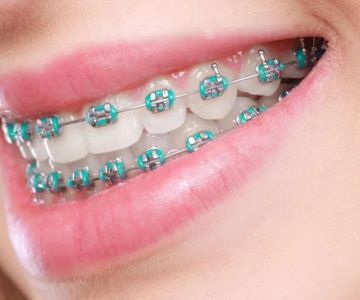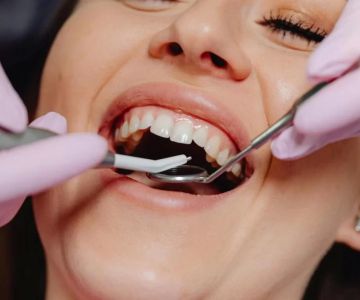The Impact of Medications on Oral Health
When we think about taking medications, most of us focus on how they affect our general well-being. However, many don’t realize that medications can also have significant effects on oral health. From causing dry mouth to altering the pH levels in the mouth, medications can lead to a variety of dental issues. In this article, I will explore the most common oral health problems caused by medications, why they occur, and how to protect your teeth and gums.
1. Dry Mouth: A Common Side Effect
One of the most prevalent issues many people face when taking medication is dry mouth, also known as xerostomia. Dry mouth occurs when the salivary glands in the mouth don’t produce enough saliva. This can lead to discomfort, difficulty swallowing, and an increased risk of tooth decay and gum disease. Certain medications, especially antihistamines, decongestants, antidepressants, and blood pressure drugs, are known to cause dry mouth.
Without enough saliva, the mouth becomes an ideal environment for harmful bacteria to thrive. Saliva plays a crucial role in neutralizing acids, washing away food particles, and preventing infections in the mouth. So, when you're experiencing dry mouth, it’s important to stay hydrated, chew sugar-free gum, and use a saliva substitute if necessary. Regular dental checkups are also crucial to detect any early signs of tooth decay or gum issues.
2. Medication-Induced Gum Issues
Some medications can also lead to gum problems, including gum enlargement or gingival overgrowth. This condition, often linked to certain medications like phenytoin (used for epilepsy), cyclosporine (an immunosuppressant), and calcium channel blockers (for high blood pressure), causes the gums to become enlarged and inflamed. This can lead to difficulties in maintaining proper oral hygiene, further complicating the situation.
To avoid these issues, regular brushing and flossing are essential. In some cases, a dental professional might recommend a more thorough cleaning to help manage the situation. If gum overgrowth becomes severe, your dentist may need to perform a procedure to trim the excess tissue and restore oral health.
3. Acidic Medications and Their Effects on Teeth
Certain medications, especially liquid medications, can be acidic and contribute to the erosion of tooth enamel over time. Medications used for acid reflux, such as proton pump inhibitors, and even aspirin can increase the risk of enamel erosion. When the enamel wears away, it exposes the underlying dentin, leading to increased sensitivity and a higher likelihood of cavities.
If you’re taking medications that are acidic, it’s a good idea to drink water after taking them to neutralize the acids in your mouth. Additionally, avoid brushing your teeth immediately after taking acidic medication, as this can exacerbate enamel wear. Instead, rinse with water or a fluoride mouthwash to help protect your teeth.
4. How Medications Can Affect Taste and Appetite
Another significant way that medications can affect oral health is by altering taste perception and appetite. Some medications, such as chemotherapy drugs, can cause a metallic taste in the mouth, which can make eating and drinking less enjoyable. Others, like antidepressants or antihistamines, might alter the sense of taste altogether, making food seem bland or unappetizing.
These changes can affect your diet and nutrition, leading to issues with overall health. When medications alter your taste or appetite, it’s essential to focus on a balanced diet and speak with your dentist if you notice any lasting changes to your oral health. Your dentist may offer suggestions on how to manage these side effects, such as adjusting your diet or taking specific vitamins to support oral health.
5. The Link Between Medications and Oral Infections
Oral infections are another potential side effect of certain medications. Medications that suppress the immune system, like steroids and some cancer treatments, can make you more susceptible to infections like thrush (a fungal infection in the mouth). Medications that reduce saliva flow also make it easier for harmful bacteria to grow, contributing to oral infections such as gingivitis or periodontitis.
To minimize the risk of oral infections, practicing good oral hygiene is critical. Regular brushing, flossing, and visits to the dentist can help reduce the chances of infection. If you're taking immunosuppressive drugs or other medications that weaken your immune system, be especially vigilant about maintaining oral health and watch for any signs of infection, such as red, swollen, or bleeding gums.
6. What You Can Do to Protect Your Oral Health
While certain medications can cause a variety of oral health issues, there are proactive steps you can take to protect your teeth and gums. Staying hydrated is crucial to combat dry mouth, and using a saliva substitute or mouthwash can help maintain oral moisture. It's also essential to brush and floss regularly, paying extra attention to any areas that might be affected by medication-related issues like gum overgrowth or enamel erosion.
If you're on long-term medications, make sure to visit your dentist regularly for checkups and cleanings. Your dentist can identify any early signs of damage and recommend preventive measures or treatments. They may also suggest fluoride treatments or sealants to protect your teeth from further damage.







 Westgate Dental Arts
Westgate Dental Arts Coventry Family Dental
Coventry Family Dental Familia Dental
Familia Dental Dr. Daniel S. Fife, DDS
Dr. Daniel S. Fife, DDS Dentistry At Suburban Square: Michael I. Wollock, DMD
Dentistry At Suburban Square: Michael I. Wollock, DMD Comfort Care Dental
Comfort Care Dental The Importance of Oral Health Education During Pregnancy for a Healthy Pregnancy
The Importance of Oral Health Education During Pregnancy for a Healthy Pregnancy Why Skipping Dental Checkups Can Lead to Bigger Oral Health Problems
Why Skipping Dental Checkups Can Lead to Bigger Oral Health Problems Advantages of Porcelain Dental Restorations
Advantages of Porcelain Dental Restorations Best Tips for Brushing Your Teeth Properly for Healthy Gums: Essential Techniques for Oral Health
Best Tips for Brushing Your Teeth Properly for Healthy Gums: Essential Techniques for Oral Health How Can Diabetes Cause Tooth and Gum Problems? Preventing and Managing Oral Health Issues
How Can Diabetes Cause Tooth and Gum Problems? Preventing and Managing Oral Health Issues Healthy Habits for Promoting Good Oral Health and Hygiene: Tips for a Healthy Smile
Healthy Habits for Promoting Good Oral Health and Hygiene: Tips for a Healthy Smile